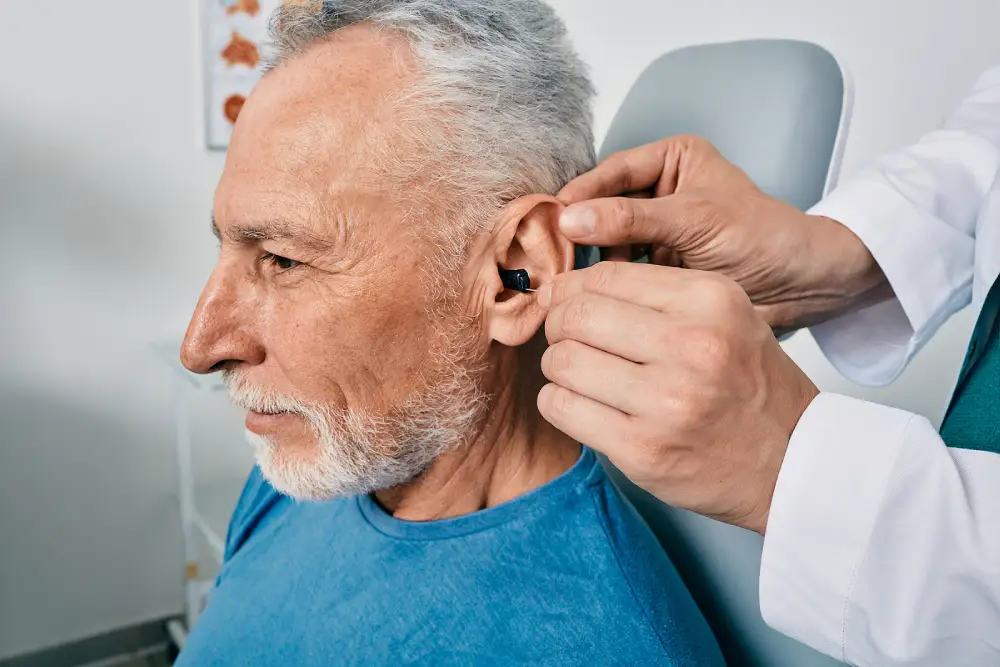Hearing Loss
Hearing loss affects millions of individuals around the world, often impacting their quality of life. This condition can arise from several causes, including age, genetics, prolonged noise exposure, and certain health conditions.
Causes of Hearing Loss
Hearing loss can stem from a variety of factors, such as:
Age
As we age, the delicate hair cells in the inner ear naturally wear down, making age-related hearing loss one of the most prevalent types.
Genetics
Some individuals are born with hearing loss due to inherited genetic mutations or chromosomal conditions.
Noise exposure
Frequent exposure to loud sounds, whether through work, hobbies, or sudden intense noises, can damage the inner ear and result in hearing loss.
Medical conditions
Certain medical issues, including Meniere's disease, otosclerosis, and acoustic neuroma, can affect hearing.
Medications
Ototoxic medications, such as specific chemotherapy drugs and antibiotics, can contribute to hearing loss as a side effect.
Recognizing the Symptoms of Hearing Loss
Hearing loss manifests differently depending on its severity. Some typical signs include:

- Struggling to catch conversations in bustling settings, like crowded events or noisy social gatherings, where background noise overwhelms speech.
- Finding it hard to make out words when there's competing noise, such as during a lively dinner at a restaurant or a lively celebration.
- Frequently needing others to repeat what they’ve said, signaling difficulty processing and understanding spoken words.
- Increasing the volume on the television or radio to levels that others might consider too loud.
- Experiencing a sense of disconnection in social settings, as the effort required to communicate makes it harder to stay engaged.
Health Issues Associated with Hearing Loss
Depression
Dementia
Isolation
Accidents
Treatment Options for Hearing Loss
Effective treatment for hearing loss is tailored to individual needs, with options including:

Hearing aids
Modern hearing aids amplify sound, making it easier to follow conversations and enjoy everyday activities. They come in various styles to suit your comfort and lifestyle.

Cochlear implants
For individuals with severe hearing loss who don't benefit from hearing aids, cochlear implants offer a surgical solution by directly stimulating the auditory nerve.

Speech therapy
Speech therapy helps enhance communication skills, making it easier for individuals with hearing loss to articulate and understand speech.

Sign language
Learning sign language provides a valuable communication tool, connecting individuals with hearing loss to their communities.
Preventing Hearing Loss
You can take proactive steps to protect your hearing and maintain your auditory health. Following these strategies can greatly lower the chances of developing hearing loss:
By following these preventive strategies, you can effectively protect your hearing and support long-term auditory health.
Taking proactive measures now can have a lasting impact on preserving your hearing for the future.
If you suspect you may be experiencing hearing loss, it’s essential to visit an audiologist for a hearing evaluation. At Shelby Hearing Center, our expert audiologists can assess your hearing and recommend the most suitable treatment options for your needs.
